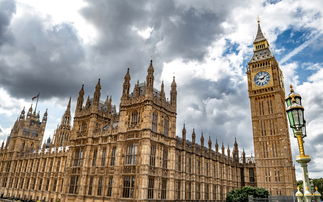Latest bilateral climate initiative marks the next phase of Post-Paris Agreement action
Late last year saw a strange fever sweep over international politics. Suddenly, world leaders left, right and centre were joining hands and striking bilateral climate deals in front of the world's media in an effort to build global momentum for a deal at the Paris Summit.
The list of bilateral climate, energy, and clean tech partnerships announced during those heady months ahead of COP21 is impressive: China and the EU promised to step up green investment, Brazil and the US signed a renewable energy pact, the UK and India inked a trade deal which included multi-billion solar and hydrogen fuel cell investments, Germany and Brazil joined forces to call for a zero-carbon economy... the list goes on.
You may have been forgiven for thinking all this talk of collaboration and co-operation would have faded away after the doors closed on the UN summit in Paris in December. After all, past experience suggests some world leaders would walk away from the French capital thinking they had delivered their quota of climate action for the next few years - they'd ramped up anticipation for a deal with their international partnerships, they had submitted their climate action plans to the UNFCCC, and they duly turned up on day one of the summit to espouse the importance of taking bold, brave action on climate. What more could anyone want?
And, of course, the efforts paid off. We got a deal. So our presidents, prime ministers and heads of state can now go back to focusing on the other stuff - wars, migration, the crashing oil price, upcoming elections - and hand the climate baton back to their respective ministers. Right? Wrong.
As COP-watchers know all too well, the individual climate plans of countries are not enough to bring warming projections under two degrees, let alone the 1.5 degree target that was the surprising stretch target contained in the final deal. Consequently, world leaders have a huge ongoing role to play in ensuring climate action remains at the very top of the political agenda.
That's why this week's news the US and Canada are poised to agree a new climate push, including new plans to cut methane emissions from the oil and gas industry by up to 45 per cent and increase efforts to protect the Arctic, is such an important and encouraging development.
Not only is the new partnership a clear sign Justin Trudeau is planning to turn the Canadian economic juggernaut away from fossil fuels towards cleaner, greener sources of growth, but it also provides evidence momentum from Paris is not dissipating, in fact it is building.
And while the North American partnership may be the most high profile climate news to emerge this week, the pressure continues to mount on governments and businesses to boost their climate ambitions in the wake of the historic summit.
An outcry from green groups and several EU countries has prompted the EU's chief climate negotiator to claim he is open to an increase in the trading bloc's emissions target to bring it in line with the 1.5 degree goal agreed in Paris. As we reported last month, Sweden is preparing plans to strengthen is climate strategy. And this week China's latest five year plan again unequivocally underlined the country's commitment to emission reduction and low carbon investment.
Meanwhile, the latest edition of the Low Carbon Business Compendium released this week features more household names than ever, highlighting the growing appetite among business leaders to get on the front foot of climate action.
The media spotlight might have shifted elsewhere following the Paris Summit, but the momentum generated by the historic agreement is still quietly building. A Republican victory at November's presidential election could yet bring it to a grinding halt, but for now evidence countries are willing to deliver on their Paris pledges is growing by the day.
This article is part of BusinessGreen's Road to Paris hub, hosted in association with PwC.









